A home is often the most significant asset people own in a lifetime. The homebuying process brings together people from every background and budget. Homeownership builds wealth when you make the right decisions to avoid financial loss. Discover how goal setting and budgeting are huge in selecting the ideal dream property to suit your unique needs.
Define Your Goals
The first step to future success is defining your goals and memorializing them. Whether you write on a notepad or maintain a Google document, goal setting means seeing what you need to do to make it happen. Next, answer meaningful questions to establish goals, such as do you want the pride of homeownership? Are you looking to build generational wealth?
Then consider your current job status and whether you intend to stay with the company long-term. For example, military homebuyers who move frequently have different needs than those employed at an office in the city. With home equity at a steady rise, buying is house makes sense for those who can afford it. Changing jobs or getting a flexible side gig, such as DoorDash, can help renters become buyers.

What Does Your Budget Look Like Today?
Now that you know why you want home ownership, it’s time to determine how much house you can afford. A mortgage pre-approval gives homebuyers financial guidelines and purchasing power. Generally, the mortgage payment should be 25 percent or less of gross income, including property taxes, mortgage insurance, and homeowner’s insurance. Plus, many homeowners need a down payment, varying from zero to twenty percent, based on the type of loan. For example, some first-time home buyers may qualify for a three percent down loan, while veterans could require a zero percent down payment. Also, credit score plays a role in the down payment necessary to get a mortgage loan.
Find out your credit scores a year before qualifying for a mortgage to see where you stand with Equifax, TransUnion, and Experion – the three major credit bureaus. Your credit score should be at least 500 to consider applying for a loan. The better your credit score, the lower your interest rate and down payment. In addition, consider a service such as Credit Karma or Lexington Law to address past debt and dispute inconsistencies on your credit report. Plus, these services give you ongoing updates to help you track and improve your score.
Get Rid of Debt
Homeownership brings unexpected expenses, such as repairs and renovations. When you own the house, you need to fix everything – there’s no landlord to call! As a result, it is crucial to eliminate debt to afford a home. Also, mortgage lenders prefer candidates with a low debt-to-income ratio, offering them the best rates and terms.
Start paying down debt ahead to ensure you’re ready to prequalify for a mortgage. Consider working with debt relief or consolidation services if you’re struggling to eliminate past bills. Another option is consulting with an accountant or financial advisor to find the proper steps to resolve debt and move forward financially.

Save Money Everywhere
When you’re ready to buy a house, it’s time to save money on every aspect of your life. At this point, every dollar matters – once you close escrow, you can enjoy the little luxuries again! Consider areas where you can save, such as:
- Make breakfast and lunch at home, rather than buying out – treat yourself once a week to avoid deprivation lapses!
- Eliminate extra services, such as cable television or a landline, and take advantage of smart devices to remain connected and informed
- Cut coupons, find discount days at local retailers, join savings clubs, download apps, and search for discount codes online to save money everywhere and anywhere you go.
- Dine out less frequently and start eating down the food in your freezer so you’re ready to move when the time comes.
- Eliminate services you don’t use, such as movie sites, gaming costs, and gym memberships that could be costing more than you think – apps such as Truebill.com help
- Look for essential items like paper towels and soap at dollar stores to save a few dollars.
- Clean out your closets to prepare for a move, and start wearing some of your favorite old clothes rather than buying new ones – you can shop again after you own a house!
Increase Your Income
Overall gross income is never more critical than before qualifying for a mortgage. The higher your gross income, the more you can spend on a house. However, you want stable employment, so you can cover the mortgage once you move in. Avoid going over your head, as you can lose the asset you worked so hard to get.
One way to increase your income is to ask your employer for a raise or promotion. Another is changing jobs, but you must show employment for at least one year before qualifying for most mortgages. Also, side gigs are an excellent way to increase your cash flow to pay down debt and save for a down payment. Sites such as Indeed.com post jobs and provide resume tools, while apps like Wonolo offer various short-term paid gigs in your area.
Stay Focused on the Prize
Working hard, saving money, and improving your credit score becomes tiring. After a long day at work, skipping your side gig and going out with friends is tempting – spending money you should save! Instead, stay focused on the prize to remain motivated and avoid temptation.
Consider creating a vision board to help you stay on track. Visualizing your fantastic future as a homeowner encourages your best efforts to make it happen. For example, post photos of the types of homes you prefer to keep you moving toward the ultimate prize – owning a home.
Give Yourself a Break
While ongoing focus and motivation are critical to success, you also need to give yourself a break sometimes. There are many free and affordable ways to have a good time that won’t take away from your down payment savings fund. For example, the local library, community centers, and houses of worship often have low-cost entertainment to help you unwind after a long day.
Also, you are only human and likely to make a few missteps along the way. So instead of faulting yourself for the double latte yesterday morning, forgive yourself and make coffee in a to-go cup for the rest of the week.
Be Accountable
Accountability is essential to determine where your money goes every day, week, month, and year. Keeping a ledger helps you track expenses. Also, services such as Mint.com can help you stay on top of your spending to make necessary adjustments.
If you’re saving with a partner, work together to eliminate debt, increase income, and save money. Often teamwork is dream work because you encourage each other to do your best, so you can own a home soon and start building equity.
What Do You Really Need in a Home?
Once you feel comfortable about your goals and budget, it’s time to consider the house and neighborhood where you want to live. Often compromise is inevitable, as most buyers are unlikely to get everything they want. Also, this is the time to differentiate between necessities and luxuries.
For example, necessities might be a three-bedroom home to accommodate a growing family. On the other hand, an inground swimming pool would be fun but would raise the house’s price and require ongoing maintenance. Make sure you can afford to keep up with luxury features in a home and stay focused on what is necessary to live comfortably.
Work With a Dream Team for Success
Finally, it takes a village to buy a house, and you should have the ultimate team for success. Include professionals such as a real estate agent, insurance broker, mortgage loan specialist, accountant, attorney, inspector, handyman, and cleaning crew.
Often a respected real estate agent can refer you to a team that already works well together for the best possible outcomes. Make sure you feel comfortable with all your team members and have ongoing communication to ensure a seamless transition into your new home.
Home buying is one of the most exciting and stressful times in your life. As you make one of the most significant decisions and investments of a lifetime, focusing on goal setting and budgeting helps you stay on track – and exceed your housing expectations!
The post Homebuying 101: Goal Setting and Budgeting appeared first on Better Homes and Gardens Real Estate Life.

 Facebook
Facebook
 X
X
 Pinterest
Pinterest
 Copy Link
Copy Link


